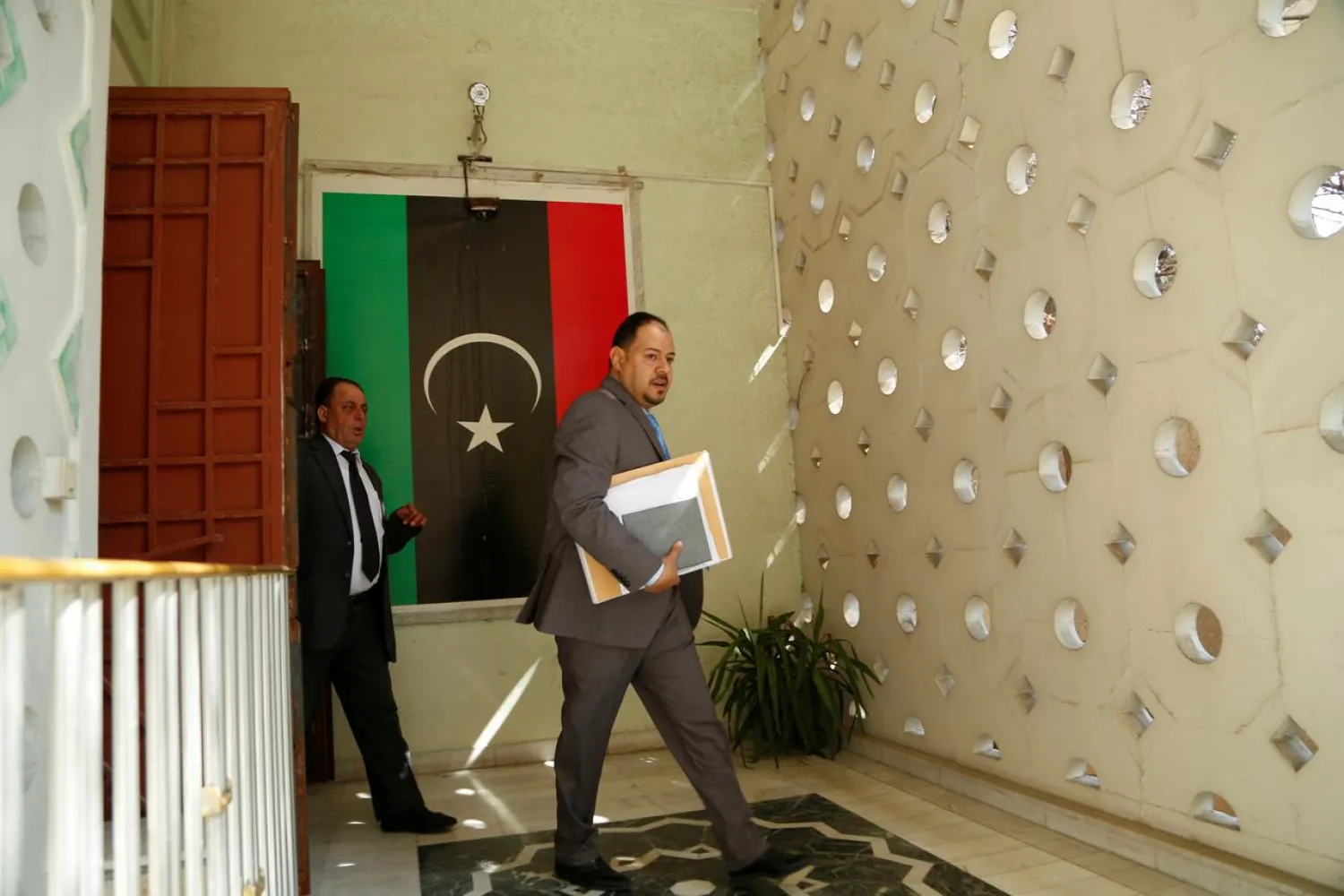A secret visit to Damascus by Libyan National Army (LNA) commander Khalifa Haftar paved the way for the resumption of diplomatic relations between the interim government in Benghazi and the regime in the Syrian capital. This was preceded by another secret visit, this time by head of Egyptian general intelligence Abbas Kamel to Syrian national security chief Ali Mamlouk in Damascus last week.
Officials have openly declared that the visits are aimed at restoring Damascus’ role in the Arab world, but secretly they are coordinating efforts to confront Turkey’s intervention on several fronts, most notably in Syria and Libya. In fact, Cairo opened an office for the Kurdish Syrian Democratic Council and has “mediated” between Damascus and the Kurds in what may lead to a confrontation with Ankara.
Relations between the Syrian government and Haftar go back several years. Some of his relatives live in Damascus as do some of the relatives of late Libyan ruler Moammar al-Gaddafi. Over time, relations progressed from the personal to military, intelligence and political cooperation. This culminated in the LNA commander’s trip to Damascus. It was reported that he discussed with military and security officials efforts to establish bilateral relations and kick off cooperation against Turkey.
This also included sending military and security experts, as well as fighters, to help in the LNA’s offensive against the Tripoli-based Government of National Accord, which is backed by Ankara. This has coincided with Russia sending Syrian fighters from areas it has recaptured, especially in Eastern Ghouta, to Libya. The head of Russia’s Wagner Group in Syria has also sent equipment and gear to the LNA.
With these steps, Haftar, Damascus and Moscow are countering Ankara’s dispatch of thousands of allied Syrian fighters to fight alongside the GNA against the LNA. The Syrian Observatory for Human Rights reported last week that some 117 Syrian mercenaries have been killed in Libya, while 5,000 more have been sent to the country.
Diplomatic breakthrough
Haftar’s visit to Syria has been touted in Damascus as an “achievement”. Haftar’s “government” reopened the Libyan embassy in the Syrian capital after it was shut in 2012. The flag of the revolution, not the Gaddafi flag, was raised above it. Whatever was spoken in private between Haftar and Syrian officials was revealed by Syrian Deputy Foreign Minister Faisal al-Moqdad, who said at the embassy reopening: “This is an acknowledgment that Syria and Libya are waging the same battle against terrorism and those who support it.”
Libyan Foreign Minister Abdulhadi Elhweg made similar remarks, noting Libya and Syria were fighting “one enemy,” Turkey and its President Recep Tayyip Erdogan. “We believe in the united Libya and our enemies and foes are those who sell the country to the colonizer, especially the Turkish one,” he said.
Arab fold
The Arab League suspended Syria’s membership in 2011, in wake of the eruption of its uprising and the brutal regime crackdown against. Several Arab countries also shut their embassies, but some have gradually been reopening them, including the United Arab Emirates and Bahrain.
Each Turkish military advance in Syrian territory was met with more Arab steps towards Damascus or against Ankara. Arab countries, or at least some of them, appear as concerned now with the Turkish threat as they are with the Iranian one. Days ago, the Arab ministerial council condemned Turkish deployment, demanding that it withdraw its forces. Ankara responded with rejection, claiming it “respects the territorial integrity of Arab countries.” It added it was taking a “constructive” position to prevent the region from plunging further into instability and that its efforts were “appreciated” by Arab peoples.
These developments have taken place ahead of an upcoming Arab League summit, scheduled for Algeria. The Algerian leadership is keen on postponing the summit from late March to late June for several reasons, most important of which is “providing the necessary conditions to achieve a breakthrough to return Syria to the League.” The organization’s chief Ahmed Aboul Gheit said this was possible after necessary Arab-Arab and Arab-Syrian consultations are held.
He failed to mention that this hinges on the outcome of the battle for Syria’s Idlib province where the Syrian regime, backed by Russia, is locked in a standoff with Turkey and its allied factions. Moscow has been actively attempting to persuade Arab countries to restore Syria’s membership, while Ankara has been bringing in more military reinforcements to see that that does not happen. It is evident that the more Turkey tries to gain a foothold in Syria, the more Arab countries would secretly and openly move towards Damascus.
All of this also hinges on Washington since the Arab League is set to be held at a time when the Caesar Syria Civilian Protection Act goes into effect in mid-June. The act prohibits any form of “political normalization” of ties with the regime and bars the public and private sectors from contributing in Syria’s reconstruction. Any breach of the act will lead to a slew of sanctions.
















